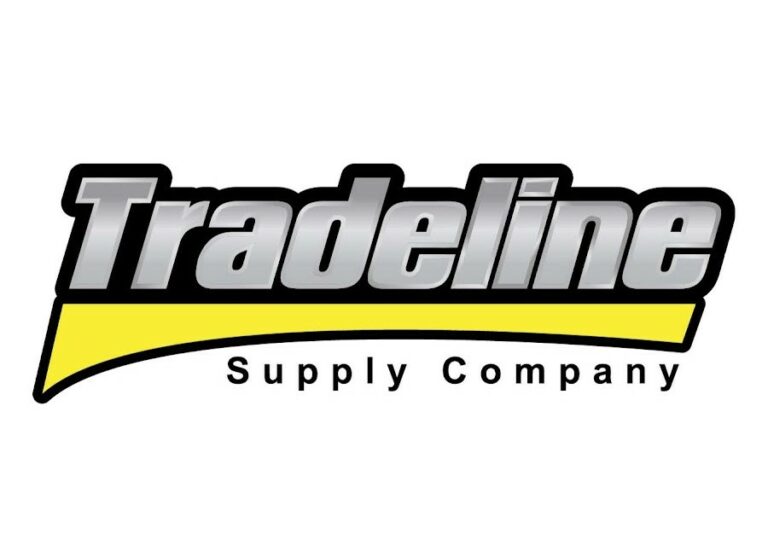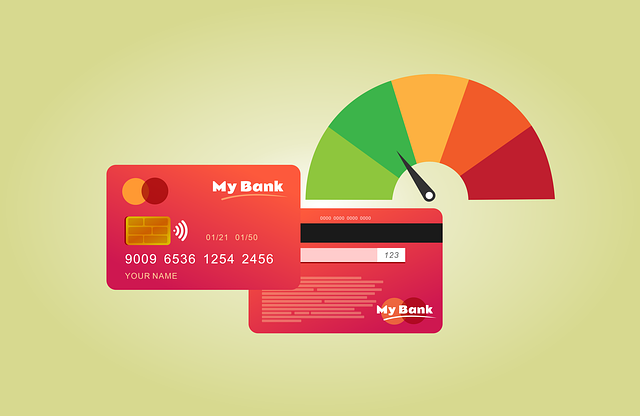What Is Equity Financing?
Equity financing allows businesses to obtain funding in exchange for shares of the company or pieces of ownership. Selling shares eliminates the need to pay back the source of the funds. But despite the lack of interest and fees, the business owner relinquishes full control of the business.
Equity Financing: Example
The shares you sell represent units of ownership. For example, let’s say your business has 1,000 shares of stock to issue. If you keep 500 shares and sell the other 500 to an investor, that individual now owns 50% of your business or has 50% “equity.” So, even though you probably came up with the idea for the company and will manage the employees on your own, the investor technically has just as much power as you.
The amount of shares you sell usually corresponds to the amount of capital the investor gives you. An investor with 50% equity would have probably covered half (or more) of your startup costs. Once an investor distributes funding and receives ownership shares, the title changes from investor to “shareholder.”
Which Businesses Do Investors Work With?
Small business investors usually work with early-stage businesses and provide five-figure amounts (much less than venture capital firms). Most investors only work with certain types of businesses. In addition to industry, investors can specialize in specific business models (B2B, Ecommerce, etc.) or choose to work with entrepreneurs from particular backgrounds. For example, an increasing number of investors specifically pursue entrepreneurs who have the odds stacked against them due to uncontrollable circumstances like gender or race.
Equity financing does not guarantee returns, and investors understand that. They’re essentially betting on your company to succeed, which will likely take years. But when your business reaches the peak of its success, your investor might stand to make even more money by selling his or her shares.
Many small business investors are retired entrepreneurs who wish to bestow their knowledge and experience onto younger generations. But since investors don’t provide as much funding as venture capital firms, they typically expect little (if any) involvement in managerial decisions. Instead, they’ll show their real value by connecting you with other powerful partners when you need more resources later on.
What Do Investors Get Out of Equity Financing?
Investors who buy equity in startups usually receive shares of “common stock.” Owners of common stock earn their ROI (return on investment) through dividends or portions of their profits. They also get voting rights at board meetings to voice their opinions during decisions about policy, management structure, etc. Depending on the amount of money invested, certain common stock shareholders may have the right to multiple votes. In other words, the single vote of one common stock shareholder could essentially have the power of three votes.
Companies choose to issue different types of common stock: A-Class and B-Class. There’s no all-encompassing definition for either term. The availability of A-Class and B-Class stock merely denotes that one type of shareholder (A-Class) gets more advantages than the other (B-Class). For example, while an A-Class shareholder might get three votes, B-Class shareholders might get just one vote or lower dividends.
Though most companies issue only common stock to investors, the company can choose to issue preferred stock. Preferred shareholders have no voting rights, but they do have dividends along with higher claims on the business’s assets than common stock shareholders. Should those assets get liquidated, the preferred shareholders would make more money.
All types of shareholders, however, have the right to sell their shares. Shareholders typically do this after the business has achieved considerable success, which increases the share’s value. Despite the higher price, the business’s upward trajectory may still attract buyers.
As you can see, businesses can customize the stock they issue based on the type of investor they wish to bring onboard.
Small Business Investors: Important Terms to Know
Before you start your search, you must first establish the type of investor you’re looking for, and not just in regards to specialty. The following terms are used to distinguish the various investment options available to small businesses:
Angel Funding
Angel investors usually provide their entire investment at once, and that’s it. They help entrepreneurs turn their ideas into businesses, but it’s up to the entrepreneur to maintain the upward momentum. Entrepreneurs in search of angel funding are usually looking for just one or two investors. This allows them to develop close relationships with these investors and avoid relinquishing too much equity.
Seed Funding
Entrepreneurs in search of seed funding, on the other hand, are looking for a partnership similar to venture capital firms. They intend to take on multiple rounds of funding from numerous investors, giving up substantial portions of equity (and possibly managerial authority) in the process. The seed round is just another name for the first round. When you declare that you’re looking for seed funding instead of angel funding, it denotes that you will eventually require further rounds of funding from more investors to continue expanding your business. Hence, companies that ask for seed funding are typically very confident in their potential for rapid growth.
Accredited Investors
According to the US Securities and Exchange Commission (SEC) definition, an accredited investor must have earned at least $200,000 on their own or $300,000 through a partnership within the last two years. The investor must also be on track to earn a similar amount this year. However, you don’t have to full this income requirement if your net worth exceeds $1 million.
Accredited investors have access to investment opportunities that are very lucrative but also very risky. The SEC reserves these opportunities for accredited investors to protect lower-income investors from losing their life savings on risky investments.
Hence, when talking to potential investors, make sure they have all achieved this status. You should never accept money from anyone without proof of accreditation.
Convertible Notes
Most investors provide funding in exchange for shares of equity or ownership in your business. The amount of shares you sell usually corresponds to the amount of money provided by your investor. Selling shares decreases the business owner’s income from company profits. Every time you accept more funding, you lose more personal income.
However, some investors and startups prefer to use convertible notes, which is a form of debt financing. The investor gives you a loan with a due date (usually 1-2 years) and interest rate. But instead of paying the investor back like you would with a regular loan, you pay the investor back with equity. When the due date arrives, the investor receives equity based on the principle (the amount of funding you initially received) plus interest. Your business lawyer will explain the details as to how the debt converts into shares.
Why would someone choose this over traditional equity financing?
When you approach investors for financing, the value of their shares depends on your business’s estimated valuation. Anyone who has watched Shark Tank knows that new entrepreneurs tend to overvalue their businesses dramatically. For the investor to accept the equity, he or she must agree with your valuation. Many pre-revenue startups have found that it’s tough to come to such an agreement. After all, it’s not as if you or the investor have lots of valuable data to base your estimation on. Convertible notes allow you to postpone this process until the loan’s due date when you have data to support your valuation.
Syndicates
Earlier, we noted that small business investing puts a tremendous risk on the investor. Well, that risk decreases significantly when the funding doesn’t come from just one person. Syndicates pool their money to invest as a group, most of which have lead investors who supply the bulk of the funding. You’ll probably correspond with one member of the group since it would take too much time for every member to evaluate your business’s potential.
What Motivates Angel Investors?
Every angel investor has his or her reasons for helping new businesses succeed. Most, however, find their motivation from one or more of the following rewards:
1. Early Investment = High ROI
By definition, all equity financiers seek high ROIs. Angel investors have an especially good chance of achieving this goal because they make their investments during the business’s infancy. It’s just like the stock market: The most significant rewards often go to investors who take the risk of buying stocks in unknown companies that eventually become massively successful. For this reason, the interest of an angel investor gives new businesses tremendous confidence.
2. Another Opportunity to Lead
Many angel investors are retired entrepreneurs looking to take on another leadership role. Maybe they love the challenge of business growth and want to test their skills in today’s climate. Maybe they want to bestow their wealth of knowledge onto someone else with a great business idea. All entrepreneurs make mistakes. Becoming an angel investor allows them to put their experience to use by showing another entrepreneur how to avoid common missteps.
3. Compassion for Underdogs
Some angel investors specifically pursue entrepreneurs who have the odds stacked against them. This includes female entrepreneurs, minority entrepreneurs, or even businesses located in up and coming areas. These angel investors may seek to increase diversity within specific industries or simply bring the gift of entrepreneurship to more groups of people.
Should You Look for Investors for Your Business?
It’s entirely feasible for extremely young businesses to obtain equity financing from investors. But you need more than just a great idea or a hard-working team. Companies that succeed in securing funding from investors usually have evidence that people will like their product or service. This could include proof of concept, data from focus groups, or market research that shows emerging trends or shifts in demand. Investors typically prefer to see as much data as possible because it gives you an idea of how to spend their money.
You should also consider seeking investors if taking on additional debt from business loans or credit cards would likely do more harm than good to your cash flow. And though your investor will probably have little involvement in your day-to-day routine, you should still welcome the advice of someone with real experience.
On the other hand, funding from investors might not be in your best interest if you have no form of evidence to support your potential success. This suggests that you don’t have specific purposes for the funds and no clear vision of your business’s future. It’s also perfectly understandable not to take on investors solely because you want to lead your company entirely on your own. Your personal goals may differ significantly from your potential investor’s objectives, which may very well include making as much money as possible in the shortest amount of time.
Lastly, do not take on investors if you plan on using the funds primarily to offset significant losses or pay off large debts. The same concept applies to small business loans.
How To Find Business Investors:
Unfortunately, there’s no textbook method for finding small business investors. It’s not like venture capital firms, where you can just browse the National Venture Capital Association for firms that specialize in your industry and business model. But like any business endeavor, the right blend of strategy, patience, and work ethic will bring you closer and closer to your goal.
Welcome to your first real test as an entrepreneur. You will most likely have to capitalize on all five of the following approaches to maximize your opportunities for that life-changing meeting:
1. Referrals
All business owners know the power of referrals. Most people (including investors) trust recommendations from friends or business partners over any other marketing form. So, do some personal inventory and think of everyone you know who could introduce you to an investor. If you’re not sure about someone’s connections, it doesn’t hurt to ask. You could talk to other entrepreneurs, financial advisors, attorneys, or simply anyone connected to wealthy social circles.
Do you know any entrepreneurs from your industry who have obtained funding from investors? Your best chances for recommendations will likely come from successful entrepreneurs who can vouch for your expertise and determination. Investors trust the opinions of entrepreneurs they respect.
2. Networking
Networking can help you in at least two ways: tapping into your networks or contacting groups of investors. You may already possess the requirements for joining specific networks in which entrepreneurs and investors co-mingle in social environments.
Many entrepreneurs start at the most logical place: their university’s alumni network. Though you might not find an investor who belongs to your alumni network, someone from this group could probably point you in the direction of one. You could also talk to former professors, social media contacts (especially LinkedIn), or even bloggers who write about small business financing.
With social media, you should undoubtedly let your LinkedIn contacts know that you’re looking for investors and ask if they can connect you with someone from the finance industry (not just investors). Remember: In addition to contacting investors directly, you must also connect with anyone who could put you in contact with one.
3. Online Platforms
Many accredited investors use exclusive online platforms to choose their next venture. Like the Angel Investment Network or AngelList, these platforms showcase new businesses with above-average potential to individual investors or syndicates. So, contact the platform with the structure you like best (individual or syndicate) and inquire about adding your business to their list of new opportunities.
4. Conferences and Summits
Every approach has the same goal: securing face-to-face meetings with investors who fit your criteria. Well, what if you found yourself in an environment with hundreds of potential investors with experience in your industry? Industry conferences and summits take place every year, but entry doesn’t come cheap. Before committing to one event, make sure it usually attracts the investors you have in mind, and see if you can reach out to any of them beforehand to secure your meeting.
Also, most investors won’t agree to deals after hearing one pitch. They might seem intrigued, but that doesn’t mean you have their word. It’s up to you to nurture the relationship after the event and ensure the investor won’t uncover any information that makes them reconsider. You may have perfected your elevator pitch, but it’s the post-event nurturing that ultimately seals the deal. It will likely take time to court your potential investor into an actual agreement, and there’s no guarantee that the investor won’t suddenly change their mind for reasons beyond your control.
As you can see, investing in industry conferences and summits might only make sense if you’ve got plenty of money and time to spare.
5. Cold Calling/Messaging
If cold outreach offers the lowest chances of success, then why do people keep doing it? Believe it or not, plenty of new businesses have secured funding through cold emails, phone calls, or direct messaging on social media. Unlike traditional cold outreach, however, these entrepreneurs likely researched potential investors before making contact to tailor their pitches to the investor’s preferences.
They also likely followed the number one rule of cold outreach: make it seem personal. Your tone and content must show the effort you’ve put into crafting an original pitch. If you don’t do your research and use generic phrases, investors will immediately write you off as “spam” or “just another cold caller.”
How Do Venture Capital Firms Compare to Angel Investors?
If your business has already gained traction and you wouldn’t mind taking someone else’s advice, you might want to consider pursuing venture capital firms instead of investors. Venture capital firms base their decisions almost entirely on data rather than clever elevator pitches or personal connections. Your business plan should envision continuous growth and show that you will only spend their money on initiatives that coincide with this objective.
Here are four more reasons to choose venture capital (VC) firms as your source of funding:
1. VC Firms Make Larger Investments
VC firms usually make minimum investments of $1 million. More substantial investments, however, means more equity for the firm. You’ll receive multiple rounds of funding as your company grows. The more money you receive, the more equity (managerial authority and cut of company profits) you lose. VC firms make more significant investments because they want your company to grow quickly and exponentially.
2. VC Firms Expect More Authority
Most investors will allow you to manage your business on your own and limit their involvement in providing suggestions here and there. VC firms, on the other hand, have strict agendas that align with their goals. They will, therefore, expect you to manage the business according to their rules. Failing to follow their rules could jeopardize future rounds of funding. And thanks to the size of their investment, you’re not exactly in the position to say no.
3. VC Firms Want Explosive Growth
When we say that VC firms want to grow your business, we’re not just referring to making lots of money. For VC firms, success means turning startups into publicly traded companies. Once you receive your final round of funding, your VC firm will likely set their sights on an IPO. If the firm made its investment very early on, an IPO could result in unbelievable earnings.
So, while investors might actually care about your personal goals, it’s all about the money for VC firms.
4. VC Firms Specialize in Thriving Industries
VC firms know what works and don’t like to take chances with unfamiliar industries. Unless your industry has massive growth potential, you should not pursue venture capital if you don’t work in the same industry as the firm’s previous businesses. Remember, VC firms base their decisions on hard data, logistics, and prior experience. They won’t invest in companies with the odds stacked against them or partner up with entrepreneurs solely because they admire their courage or intelligence.
Are Small Business Investors Right for You?
Up until fairly recently, rapid growth was the most appealing path to success for startups. But if you look at virtually every online business article, they all offer the same advice: don’t grow too quickly. One of the most significant risks of taking on an investor is putting a huge budget in an inexperienced entrepreneur’s hands. Countless businesses have made the mistake of rushing the growth process (marketing, hiring, etc.) rather than spending their money steadily and wisely.
If you want to steer clear of this frequent misfortune, look into debt financing instead of equity financing. You can approach the growth process without haste and keep a close eye on your cash flow along the way. Paying off debt while covering growth-related expenses will also teach you how to make the best use of your budget. This skill will certainly come in handy when you have a lot more money at your disposal.
How Does Equity Financing Compare to Debt Financing?
Debt financing typically refers to the use of business credit cards or business loans, which can come from banks, online lenders, or peer-to-peer lenders. The business must then pay back the lump sum, plus interest and fees, by the agreed-upon due date. Aside from your obligation to pay off the debt, nothing else changes regarding the way you run your business.
Let’s delve deeper into the rules of debt financing to see how they compare with the advantages and disadvantages of equity financing:
Debt Financing Requires Repayment
Debt financing involves owing money and paying it back by an agreed-upon due date, plus interest and fees. If you choose the most traditional type of loan, you’ll have to make fixed, monthly payments immediately after receiving funding. Short or medium-term loans might have shorter payment frequencies (daily, weekly, bi-weekly, etc.). Missed payments can result in penalties and hurt your personal credit score. It’s also hard to make fixed payments when revenue fluctuates due to uncontrollable factors like seasonality.
With equity financing, on the other hand, you don’t owe any money. Even if your business fails, your angel investor or venture capital firm cannot legally demand money from you. They knew about this risk before making their investment. When you take out a business loan, it’s the borrower who assumes the most risk.
Small businesses repay debt without damaging their cash flow all the time. But it’s easy for young companies to borrow more than they can afford to pay back, especially without a stable foundation for revenue.
Debt Financing Won’t Affect Your Income
Choosing equity financing means sacrificing total ownership of your business. You must now split the profits with your angel investor or venture capital firm. Until your business becomes massively successful, you might have to put certain personal plans on hold.
Some entrepreneurs make the mistake of continuously taking on more equity financing without realizing its effect on their ownership of the business. Multiple funding rounds might sound great, but each one takes away more and more of the original owner’s profits.
Forfeiting future profits could also prevent you from receiving your hard work’s full reward, especially if you plan to sell your business. Let’s say you eventually sell your business for $110 million. If you had previously given away just 10% of your ownership, $11 million could go to someone who (possibly) had no strategic impact on your success.
You wouldn’t lose anywhere near as much, however, if you borrowed a few million to finance your startup and paid it back over several years.
Debt Financing Teaches You to Spend Carefully
An early-stage business can probably access more money through equity financing than debt financing. But unless the equity financier is willing to offer financial advice, this could be more of a curse than a blessing. New entrepreneurs usually don’t have experience in managing massive budgets. This could easily result in careless or rushed spending.
On the other hand, debt financing tends to have the opposite effect: It teaches new business owners to spend carefully and efficiently. If you spend the money on the wrong investment or fail to generate enough revenue, you won’t be able to pay it back. Many successful business owners benefited from learning how to manage debt early in their careers.
Debt Financing Doesn’t Involve Selling Ownership
Equity financing also runs of the risk putting substantial power into the hands of someone you might not always agree with. Your equity financier might have completely different goals but keep them hidden until coming on board. And since this person or firm is essentially keeping your business alive, it’s not as if you’re in the position to say no.
Some equity financiers might just want to make as much money as possible in the quickest time frame. Others might dismiss personal relationships with employees if letting them go makes more financial sense. For example, your equity financier could ask you to replace an employee who helped you start your business for someone else who could do the same job for half the salary.
To avoid this all-too-common situation, research your potential buyer’s previous ventures before selling your shares. You may even want to speak to their former partners about their management style and preferred degree of influence.
This segues into arguably the most significant advantage of debt financing. If you work with an online lender, you don’t even have to explain how you plan to use the money to be approved for a business loan. As long as you continue to make payments, you can run your business in any way you please.
What are the Pros and Cons of Peer-to-Peer Lending?
A significant player in the ever-evolving business financing industry is peer to peer lending. The approval process for a peer to peer business loan is very different than that of a commercial bank or an online lender. Rather than submitting a conventional application, potential borrowers make a profile on a website. This profile is made available to lenders and investors, who can then decide to offer to finance.
The rise of peer to peer lending can be attributed to at least two factors. First is the low interest rates. Investors compete to offer better rates, and the only expense they have to worry about is their website. This alludes to the second factor: the amount of money investors can make through steady interest payments. Even business loans with very low rates can earn an investor more money than other means.
Despite these conveniences, peer to peer lending is just like any other form of business financing in that it has its drawbacks. Here are four things you probably didn’t know about peer to peer lending:
1. The Application Process Takes Time
Before creating a profile on a peer to peer lending platform, you have to fill out an application. Once this application is approved, you are then permitted to create a profile for investors. These two tasks are nowhere near as tedious as applying for a bank loan. You don’t need to create a comprehensive business plan or compile mountains of other paperwork. But compared to online lenders, the full application process for peer to peer lender takes more time. Filling out an application for the former two lenders takes a couple of minutes, with very little paperwork involved. You can probably apply for a credit card online in less time than it takes to fill out a peer to peer lending profile.
2. Not Everyone Gets Funded Right Away
Online lenders can approve and fund nearly every application they receive in under 48 hours. This is the longest it will take them to make a decision, no matter what. Peer to peer lenders can match this time frame, but not with every potential borrower. Your approval and funding time depends on the likelihood of a lender or investor taking an interest in your profile. This often happens within a few minutes to a few days, but some borrowers have reportedly had to wait several weeks before hearing from an investor or receiving funding. So, unlike the two other types of lenders, peer to peer lenders cannot technically guarantee that every potential borrower will be contacted by an investor or funded within the same time frame.
3. Each Lender Has Their Criteria For Approval
In most cases, your chances of being approved and funded by a peer to peer lender depend mainly on personal credit score and debt-to-income ratio. Each platform and investor, however, has its own criteria. Some platforms and investors might place a higher value on certain requirements than others. Be sure to research the platform’s approval requirements before filling out an application.
Your profile also allows you to explain why you need funding. Depending on the platform, this part of the profile could be crucial for attracting lenders or investors. Let’s say two potential borrowers are asking for the same amount of money. One potential borrower has a stronger credit history, but the other composes a more enticing profile or does a better job explaining the loan’s purpose. The second borrower might be more appealing to the lender or investor who happens to be examining both profiles.
4. Fees Often Accompany Low Interest
Anyone with experience in debt financing knows that low interest rates usually come with a catch. For peer to peer lenders offering low interest rates, that catch is fees. Since the interest rates are so low, these lenders depend on fees to finance their platforms’ growth. Fees will likely be higher for potential borrowers with lower credit scores. Many inexperienced borrowers have been deceived by low rates and ended up paying high fees. This is why it’s probably best to choose an offer from a lender or investor that contains a sensible interest rate, not too low but not too high.
If there was one thing to always keep in mind about peer to peer lending, it’s to be just as cautious as you would with any other form of financing.
How Does Crowdfunding Work?
Crowdfunding has become one of the easiest ways to raise capital. It allows you to ask the entire Internet universe for help raising money for any sort of cause. You can use the funds for any business-related expense, and you don’t have to pay any of it back.
There are two main types of crowdfunding:
Rewards-based crowdfunding: This is the type of crowdfunding used by most companies. These campaigns usually support startups or projects that don’t qualify for traditional business loans. Their goals typically range between $1,000 and $100,000 and offer incentives for more substantial donations.
Equity crowdfunding: As the name denotes, this type of crowdfunding is usually reserved for startups looking for higher amounts, i.e., around $50,000 to $1 million. Instead of the incentives mentioned above, these campaigns offer shares in the company.
What Are the Benefits of Crowdfunding?
Here are some benefits to crowdfunding that are harder to find with debt financing and equity financing:
- Reward-based and equity campaigns have no requirements (credit check, cash flow, collateral, etc.)
- There’s no limit on the amount you can ask for.
- It’s a global platform. Help can come from anywhere.
- Creativity, sincerity, and innovation are encouraged and rewarded.
What Are the Disadvantages of Crowdfunding?
Like any other form of financing, crowdfunding has its drawbacks. The following features show that crowdfunding is not as easy as it looks:
- All crowdfunding campaigns are subjected to fees by the hosting company (Kickstarter, Indiegogo, GoFundMe), usually ranging from 7% to 12%.
- Many host companies have an all-or-nothing policy. If you reach your goal amount in the allotted timeframe, you get all the money. If you don’t, you get nothing.
- Crowdfunding is fiercely competitive. There are a plethora of campaigns vying for investors’ dollars.
- Successful campaigns require a lot of marketing: Facebook, Twitter, Instagram, fliers, etc. You have to get the word out, or your campaign will go nowhere.
- Rewards-based and equity crowdfunding are geared toward start-ups and special projects. Rarely do established businesses successfully raise investment capital through these venues.
Which Type of Financing Should You Choose?
With so many financing options, it’s crucial to figure out different ways to narrow your search. A great start is making a list of essential attributes like your business’s size, age, industry, and goals. This will allow you to answer the following question: Of the options mentioned above, which one has had the most success with businesses like yours? Indisputable data of this nature will be beneficial on this journey. After all, there are so many types of financing because there are so many different types of businesses!











